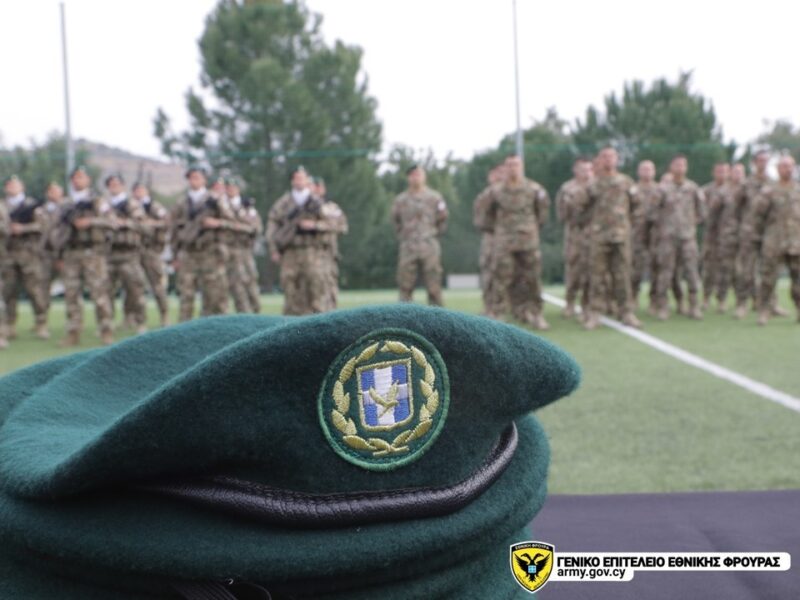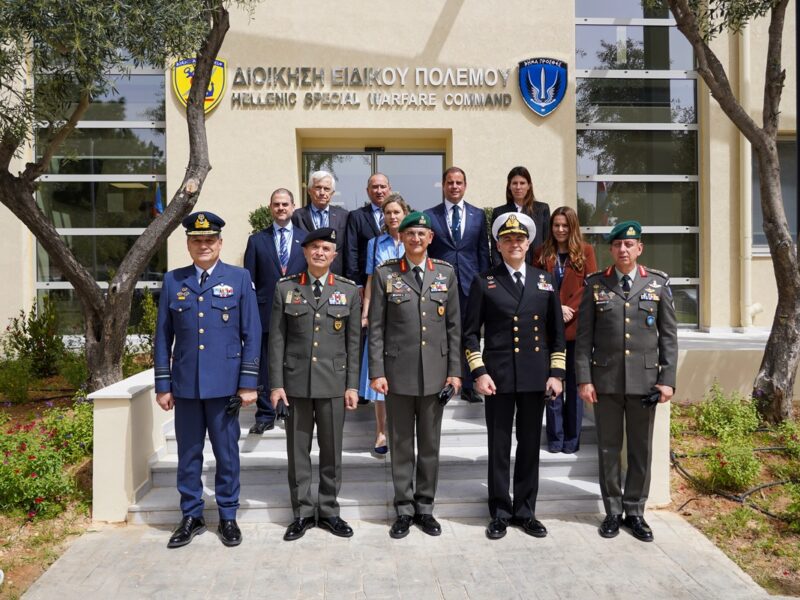Turkish commentators have recently emphasized the need for Ankara to close the front with Syria, in order to make it easier for Turkey to manage the front with Greece militarily.
I had mentioned in a previous article, that Turkey is “trapped” operationally with the involvement of ground forces that it has transferred over the last six years mainly from the 1st Army (Thrace) and the Aegean Army for military operations in Iraq and especially in Syria, as a result of which it has difficulty to operate militarily against our Country in terms of general conflict, being able to cause only one military engagement of limited scope and time. However, it seems that the developments resulting from the looming re-approach between Ankara and Damascus are changing the facts to the detriment of our country.
Since the beginning of the Syrian civil war, Turkey has opposed the Syrian regime and politically and militarily supported the opposition and other extreme Islamic organizations. Ankara trained and equipped the Free Syrian Army (FSA) in pursuit of the overthrow of Assad, but also of the plans of the Rojava Kurds to create a Kurdish state formation in Syria. The Turkish Armed Forces (TDF) in this context, carried out 3 main military operations in northern Syria with the aim of creating a Security Zone at a depth of 30 km along the Turkish-Syrian border.
For this reason, Ankara promoted Units and Formations in the area of the Turkish-Syrian border and from the western front (Greece), in order not only to carry out military operations but also to maintain the occupied Syrian territories.
Whenever the TDF conducted an operation in northern Syria, the Syrian regime pushed military forces further north in a sign of annoyance and readiness to intervene, while at the same time the US-backed “Syrian Democratic Forces” (SDF) controlled by the Kurdish YPG (People’s Defense Units of the People), approached the Syrian regime forces for cooperation, seeking support and cooperation. That is, the Kurdish factor acts in cooperation with the Assad Armed Forces, against any operation to create – expand the Security Zone under Turkish occupation within the Syrian territory.
It is evident that in the last five years Erdogan has softened his rhetoric against Assad while at the same time it is known that in the last two years there has been contact between Ankara’s Intelligence Services and those in Damascus.
But the statements of the Turkish President after his meeting in Sochi, Russia with Putin on August 05, 2022, as well as those of the Turkish Foreign Minister, reveal that Ankara is no longer seeking the overthrow of Assad but that the procedures for starting talks between the 2 sides and at government level.
Ankara, in a looming negotiation with Assad, seeks the creation of a Security Zone along the entire length of the border within Syrian territory with the simultaneous elimination of terrorist elements, as well as the return of at least 60-70% of the Syrian refugees who live in Turkey . The Syrian regime, for its part, demands the withdrawal of Turkish military forces from Syrian territory. It is very difficult to find a common place to resolve the Ankara-Damascus aspirations, but just the start of a prolonged negotiation between Ankara and Assad at a high level, gives the Turkish side the following operational possibilities to the detriment of our country:
Freezing the situation of tension and military rivalry between Ankara and Damascus.
Possible deconstruction of Syrian Kurdish cooperation with Damascus not only on a political but also on a military level.
Staff discharge of the Turkish General Staff, since it will no longer maintain the same level of manning and readiness of the Operational Headquarters which is in charge of the operations in the Syrian territories.
Unhooking Turkish military forces from the Turkish-Syrian border and returning them to their original headquarters (1st Army – Aegean Army).
Orientation of the Turkish Air Force and the fleet of Unmanned Aircraft (UAV) only towards the front with Greece and the Republic of Cyprus.
Acquiring the ability on the part of Ankara to operationally escalate the tension with our country, since it will now have the ability to use with greater ease and number of ground forces as well as Special Forces Units, in contrast to crises of the recent past where it mobilized only aeronautical forces (crisis Oruch Reis).
For the first time in the last decade, it seems that the operational framework of the Turkey-Greece confrontation is different, as many of Ankara’s actions converge on the same Objective Purpose, that is, military action against our Country. Particularly impressive are the unprecedented rhetoric of Turkish government officials, the improvement of Ankara’s relations with other countries, the intensity and frequency with which Ankara presents and submits its claims to International Organizations, the preparation of Turkish public opinion for a possible military involvement with our country with continuous statements – slogans of government officials, the mass gatherings of refugees in the west but also the methodical Turkish offensive communication tactics against our country.
It should be emphasized that a possible closure of the front by Ankara with the Syrian regime, a development which will also be accompanied by the disengagement of military forces from the area of the Turkish-Syrian border, is potentially the crucial element that differentiates the current situation in relation to corresponding tense situations of the past and is estimated to be the main indication that Ankara is “lawfully leading” the situation into a military conflict with our country.
*Lieutenant General e.a. Lazaros Kambouridis is a graduate of the School of National Defense, holds an MBA from Nottingham Trend University, a Graduate of the Department of History & Ethnology of the University of Athens, and a PhD candidate at Panteion University, while he was a member of the Greek Diplomatic Mission in Istanbul in the period 1995-1999, Defense Attaché at the Greek Embassy in Ankara in the period 2013-2017.


